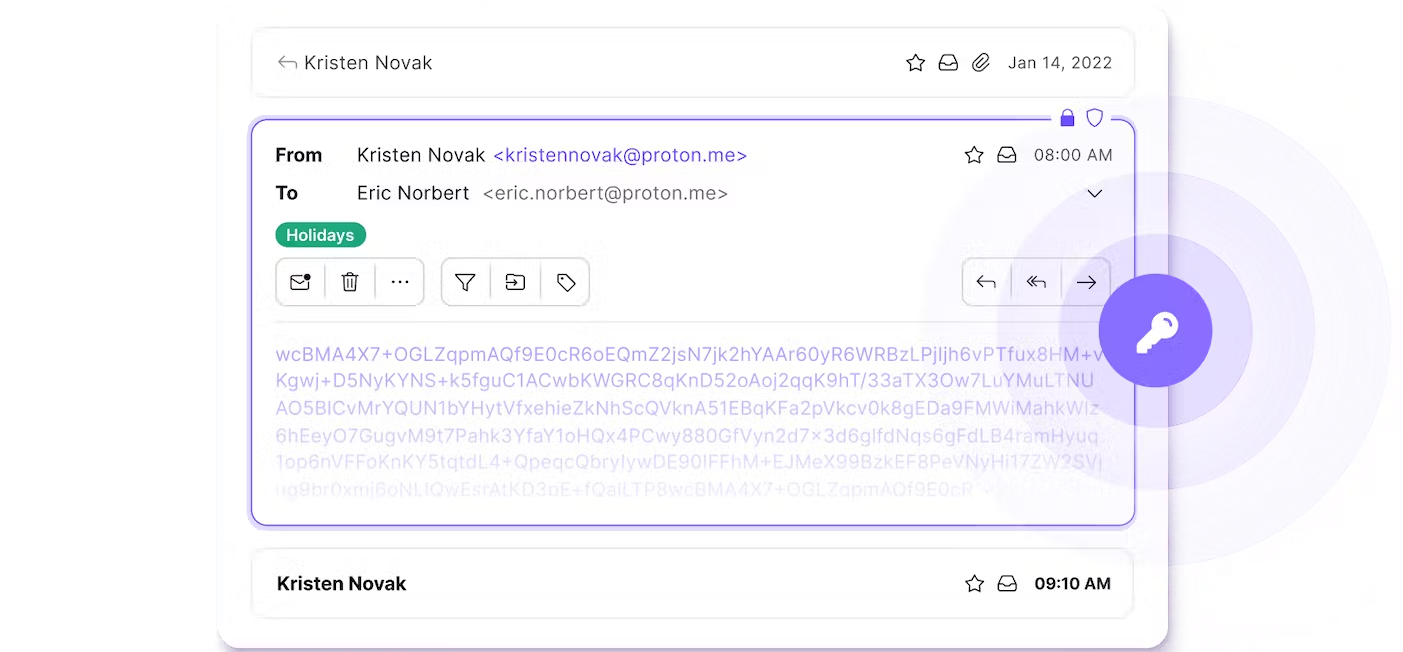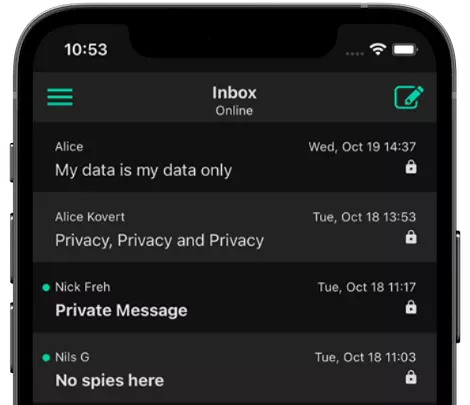Privacy-minded individuals are increasingly seeking alternatives to mainstream email services like Gmail and Outlook. These platforms, while widely used, often raise questions about data security and the privacy of user information and communications. Fortunately, several privacy-centric email alternatives have emerged, providing users with secure and private communication options. In this blog post, we’ll explore three notable options: ProtonMail, Skiff Email, and Tuta. All three provide native mobile apps that will run on Android-based platforms like GrapheneOS, in addition to browser based email access.
ProtonMail

ProtonMail stands out as one of the pioneers in secure email services. Launched in 2014 by a group of scientists from CERN, the service is built on the principles of end-to-end encryption, ensuring that only the intended recipient can decrypt and read the messages.
Key Features:
- End-to-End Encryption: ProtonMail encrypts emails both in transit and at rest, ensuring that even the service providers cannot access the content of your messages.
- Zero-Access Encryption: ProtonMail employs zero-access encryption, meaning that your data is encrypted on their servers, and they do not have the ability to decrypt it.
- Anonymous Sign-Up: Users can sign up for ProtonMail without revealing personally identifiable information, enhancing anonymity.
- Self-Destructing Emails: ProtonMail allows users to send self-destructing emails, adding an extra layer of privacy for sensitive information.
- Open Source: ProtonMail’s code is open source, allowing users to scrutinize its security and contribute to its improvement.
Skiff Email

Skiff Email takes a unique approach to privacy by focusing on data residency and putting the user in control of their data. Developed by the team at Skiff, this email service is designed with a privacy-first mindset.
Key Features:
- Data Residency: Skiff Email lets users choose where their data is stored, providing options for servers in different regions, allowing users to comply with specific privacy regulations.
- End-to-End Encryption: Similar to ProtonMail, Skiff Email ensures end-to-end encryption to safeguard user communications.
- Revocable Emails: Skiff Email introduces the concept of “revocable” emails, allowing users to revoke access to sent emails even after they have been opened.
- Privacy-First Design: Skiff’s design philosophy centers around putting privacy at the forefront of the user experience, making it a compelling option for those seeking heightened security.
Tuta (formerly Tutanota)

Tuta is another privacy-focused email service that emphasizes simplicity and accessibility. It provides a user-friendly interface without compromising on security.
Key Features:
- End-to-End Encryption: Tuta encrypts both the content and attachments of emails, ensuring that only the intended recipient can access the information.
- Open Source: Tuta’s client and apps are open source, allowing users to verify the security of the service.
- Secure Calendar and Contacts: Tuta extends its security features beyond email, offering a secure calendar and contacts application.
- Anonymous Sign-Up: Tuta allows users to sign up without providing personal information, preserving anonymity.
Additional Privacy-Focused Email Hosts
While ProtonMail, Skiff Email, and Tutanota are notable players, several other privacy-focused email hosts are worth considering:
- Mailbox.org: This German-based email provider offers comprehensive privacy features, including end-to-end encryption and anonymous sign-up options.
- Posteo: Another German email service, Posteo prioritizes privacy and sustainability. It provides end-to-end encryption and anonymous account creation.
- StartMail: Developed by the creators of StartPage, StartMail focuses on user privacy with features such as encryption, disposable aliases, and strict no-tracking policies.
The shift towards these platforms signifies a collective effort to reclaim control over personal data in an era where digital privacy is of paramount importance.
